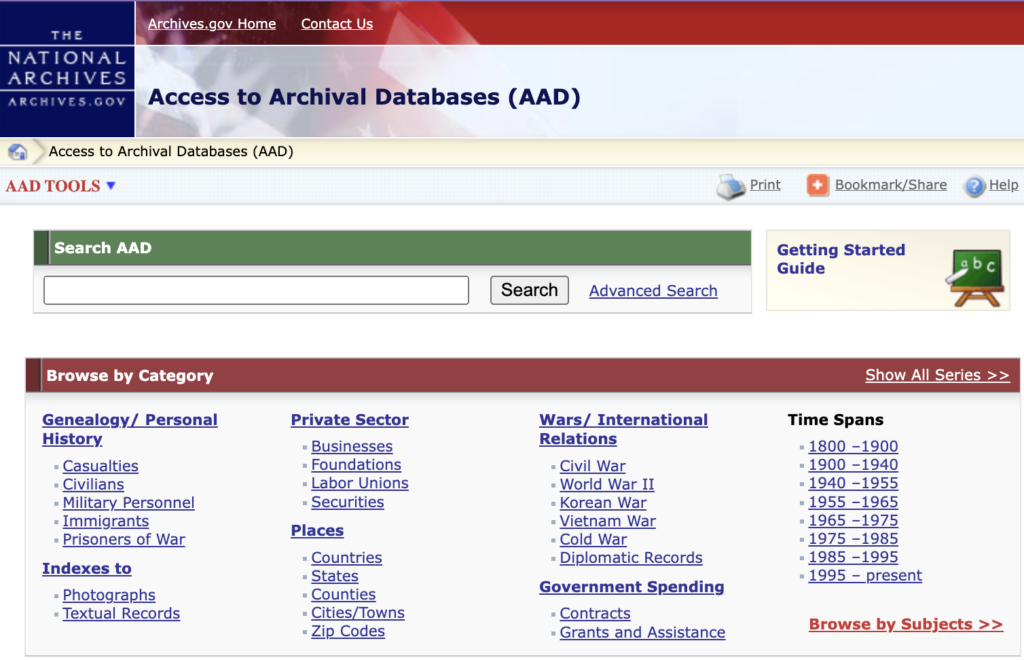How To Find Out If Someone Was Dishonorably Discharged: A Guide
When military service members leave, they receive military records containing information about their time working in the military. Their discharge status can impact the military benefits they’re entitled to. Thus, each service member must ensure that the discharge status indicated in their military personnel records is accurate.
Veterans who receive dishonorable discharges face the most consequences. Military individuals receive dishonorable discharges usually because of military misconduct. These actions may include missing from military service, murder, treason, or sexual assault.
With this discharge, a veteran won’t be able to receive VA benefits. They also lose their rights to own firearms or ammunition. Moreover, they cannot pursue federal employment and may not meet eligibility requirements for civilian government benefits. Thus, it is essential to know whether a person was dishonorably discharged.
Contents
What Is A Dishonorable Discharge?

A dishonorable discharge is the harshest form of release a military member can receive. It comes from courts-martial trials place instead of the military administration. This type of discharge can negatively affect your chances of receiving VA benefits. Moreover, you won’t be allowed to reenlist in the military. This discharge status will show in any federal background check. Thus, the implications can be severe.
Your military discharge remains permanently on your official military personnel files. Your discharge records may affect your ability to find employment opportunities. Moreover, they may impact how much government assistance you’re entitled to. Some benefits are unavailable to individuals with discharges other than honorable. Having dishonorable discharge records can significantly impact your life even long after you’re done with an active duty assignment.
A dishonorable discharge status can affect your civilian life in many ways. You won’t be able to reenlist in other Armed Forces branches, like the United States Navy, Army, Air Force, National Guard, or Marine Corps.
With a dishonorable discharge in your service records, you will be denied many military service benefits, including federal loans and comprehensive healthcare. The many perks of honorable discharge will be restricted to you as long as you have this status in your records.
Reasons For Dishonorable Discharge
If a person’s discharge papers include a dishonorable discharge, it is likely that they were convicted in a court-martial for committing a severe offense during their active duty service. Most veterans with this status in their records are considered disgraced, regardless of any past honorable service. The military deems their actions shameful.
Some offenses that may warrant receiving dishonorable discharge include desertion, murder, fraud, treason, sexual assault, and espionage. In short, this is the military equivalent of receiving a felony offense.
People with this type of discharge may also have criminal convictions. Thus, the implications of a dishonorable discharge can be severe. It should be noted that not all who receive criminal convictions have dishonorable discharges on their records. The general court-martial determines if the service member deserves to have this on their permanent record.
How To Find Out If Someone Was Dishonorably Discharged
It is unlikely that someone would admit that they were dishonorably discharged right from the start. However, there are ways for you to determine this for yourself.
Initial Steps In The Investigation

The initial step in determining if a person received a dishonorable discharge involves gathering an extensive amount of information. If they’re applying for a job, they probably submit supporting documents that can help you conduct your research.
If unavailable, you can turn to public records and official resources. The internet makes it possible to learn much about a person through various websites. If that person was involved in a severe crime, they might have been written about in a local newspaper or media outlet.
You may also try exploring online military databases and resources. The National Archives has online information that may help determine if the person in question was dishonorably discharged. The Access to Archives Databases (AAD) system has computerized records that can verify military service.
Requesting Military Records

Through the Freedom of Information Act (FOIA), the general public, including foreign individuals, can access legal information about a person’s military service records. Only service members and their next of kin can fully request military service records. However, you may still be able to get relevant information that you can use. Some information the public can access without having to ask permission from the veteran includes the following:
- Name of the service member
- Service number
- Service dates
- Military Branch
- Assignments and geographical locations
- Final duty status and rank
- US military education level
- US military awards and accolades
- Photograph
- Court-martial trial transcripts
- Place of service entrance and separation
How exactly do you request military records?
- You must obtain certain basic information to locate a person’s military records. These include their complete name, service number, social security number (if applicable), branch of service, dates of service, and place and date of birth.
- You can send a letter or accomplish a Standard Form 180. Then, send any of these documents to the National Personnel Records Center (NPRC). This is their address for your easy reference:National Personnel Records Center
1 Archives Drive
St. Louis, MO 63138 - As an alternative, you can submit the letter personally or fax the Standard Form 180 to 314-801-9195.
- You can also explore requesting information about a person’s military service through Military Verification. We have resources to help you obtain information in a person’s military records.
Contacting Relevant Authorities

If you intend to search for official military personnel files, you should contact the appropriate authorities. The National Personnel Records Center is a helpful resource that contains the military records of all personnel who served within the past 62 years. You may reach out to the National Archives for older files.
Another helpful method you can explore is contacting the individual’s former military unit or branch. Military members usually reveal if they were part of the Marine Corps or other military branches. Contacting a nearby office can help you obtain vital information, like if the person you’re dealing with had an honorable discharge.
Moreover, you can submit a petition to the Department of Defense requesting the release of an individual’s military service records. If you want to receive a person’s official military personnel files, reach out to the National Personnel Records Center.
Analyzing Discharge Documentation

If you don’t have a military background, you might find it challenging to understand military records. To determine if the person was dishonorably discharged, you need to check the person’s character of service.
There are six types of discharge of character available:
- ” Honorable” or “Under honorable conditions”
- “General under Honorable Conditions”
- “Other than Honorable”
- “Bad Conduct” (BCD)
- “Dishonorable” (DD),
- “Entry Level (ELS) or Non-Characterized”
You should be on the lookout if that individual’s personnel files indicate DD as the discharge of character. If you don’t understand what the DD214 means, you should seek advice from someone in the military. Alternatively, you may contact military authorities or the nearest branch of service for people who may explain things better.
Privacy And Legal Considerations
While you should be vigilant with your background check, you should remain respectable during your research. You should show regard for that person’s boundaries. If they’re uncomfortable sharing certain information with you, stop persisting.
While you can legally obtain limited information about a person’s military records, you should ensure that you follow the law. You should conduct your research the right way. If needed, you should seek legal counsel. However, getting professional help might be expensive. The individual you’re looking into might also take offense that you would hire someone to investigate their background.
Moreover, you should understand that this process can take some time. Receiving the records may take weeks or even months. This depends on the volume of requests the office you’re in contact with has on its plate. You shouldn’t expect a fast turnaround.
Fortunately, you can obtain military records easily through Military Verification. We can help you conduct your background check without waiting too long.
Conclusion

If you want to determine if an individual was dishonorably discharged, preparation is vital. To ensure the process goes smoothly, you must acquire the necessary documents. You wouldn’t want to make a grave error, so you should ensure that the information you receive is accurate.
While it’s important to be vigilant, you should be sensitive during your research. You should try to be as empathetic as you can. Fortunately, we at Military Verification can help you through this process.
FAQs
Does a dishonorable discharge look bad?
Yes, this implies that an individual committed a heinous offense. This is the military equivalent of a felony conviction.
How common are dishonorable discharges?
It is pretty rare to a person is given a dishonorable discharge. Dishonorable discharges account for 0.1% of total military discharges.
Is a dishonorable discharge still a veteran?
Yes, while that person may have behaved poorly in the past, that person is still a veteran. After all, they were on active duty for a time.
What are the five types of military discharges?
The five types of military discharges are classified into two categories: administrative and punitive. The former includes honorable military discharge, general discharge, under other than honorable conditions. Meanwhile, punitive discharges encompass bad conduct discharge (BCD) and dishonorable status (DD).






